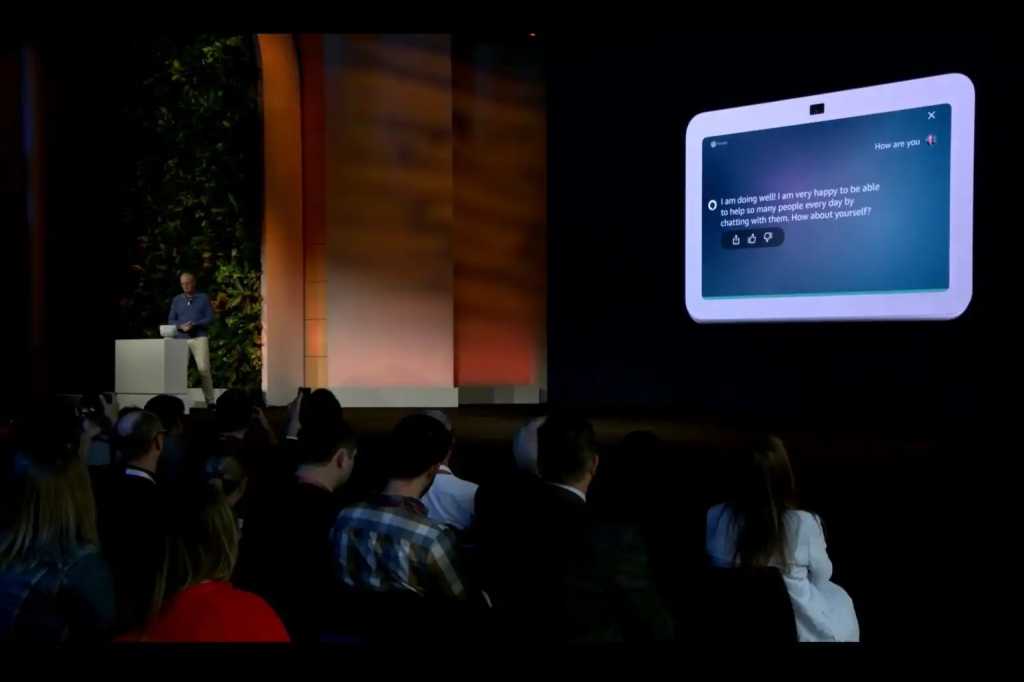For the past several years, Amazon has held a big September event to show off its latest hardware, and 2023’s presentation included a doozy: a new Alexa with ChatGPT-like conversational abilities.
It was an impressive demo, to be sure, and outgoing Amazon hardware chief David Limp (who has since been replaced by ex-Microsoft exec Panos Panay) said we’d get a preview of the new Alexa sometime in 2024.
But as the final weeks of 2024 tick off, there’s still no sign of the so-called “remarkable Alexa,” and it’s becoming increasingly clear that the promised preview won’t be happening anytime soon.
This news story is part of TechHive’s in-depth coverage of the best smart speakers.
Besides the lack of any clear timeline for the new Alexa, Amazon raised eyebrows by skipping its big hardware event this year, opting instead for a scaled-back unveiling of new Kindle models.
The latest we’re hearing about the revamped Alexa comes from Bloomberg, which reports that the “target” window for the “remarkable” Alexa rollout is now 2025.
The problems dogging the new Alexa have already been widely reported, and the Bloomberg story ticks them off yet again: answers that are “nowhere as good” as ChatGPT, “smarter, but not necessarily wiser” responses, plus “ongoing hallucinations” that “aren’t always wrong, but uncalled for,” according to the article.
Even worse, the AI-upgraded Alexa is said to be having trouble with its bread-and-butter smart home abilities, such as controlling smart lights, Bloomberg reports.
Reached for comment, Amazon gave the following statement to TechHive:
“Our vision for Alexa remains the same—to build the world’s best personal assistant. Generative AI offers a huge opportunity to make Alexa even better for our customers. We have already integrated generative AI into different components of Alexa, and are working hard on implementation at scale—in the over half a billion Alexa-enabled devices already in homes around the world—to enable even more proactive, personal, and trusted assistance for our customers. We are excited about what we’re building and look forward to delivering it for our customers.”
Amazon has publicly started that it hopes to charge extra for a “remarkable” version of Alexa with revamped AI abilities, perhaps as much as $5 to $10 a month. The “classic” Alexa would remain free.
But as early as January 2024, bad buzz began swirling around the new Alexa, with word that the revamped assistant was “deflecting answers” and “often giving unnecessarily long or inaccurate responses.”
Amazon is said to have turned to Anthropic’s Claude AI as well as AI tech from Mistral to boost the new Alexa’s performance, but the updated assistant still doesn’t appear ready for prime time.
One issue is the expectations game. While people expect hallucinations and long-winded answers from ChatGPT, a similar performance from the typically dependable Alexa could be seen as a “fiasco” for Amazon, Bloomberg points out.
Getting hallucination-prone LLMs to work reliably with smart device APIs is a notoriously difficult task, which is why you don’t see HAL-like voice assistants flipping on smart lights yet (outside of DIY platforms such as Home Assistant).
Just consider Amazon rivals Apple and Google, both of which have been cautious about their AI plans for the smart home.
Apple’s new Apple Intelligence functionality doesn’t come anywhere near the Apple Home app, for example, while Google’s Gemini AI will—in the short term, at least—be relegated to giving out automation suggestions and describing the goings-on in Nest video events.
So while Amazon’s demos last year of a supercharged Alexa controlling the smart home by sussing out intentions from natural-language statements (like a robot vacuum scooting to the kitchen after you say “Alexa, it’s dirty in here”) were compelling, they don’t seem close to becoming reality, or at least not yet.

